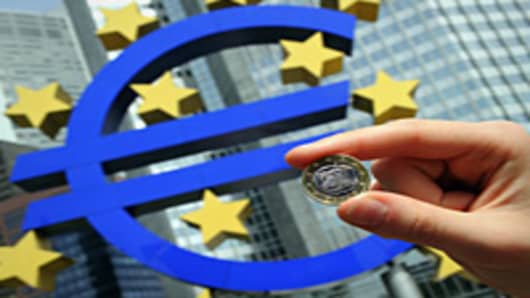Bearish hedge fund managers have reaped some of their biggest gains since the collapse of Lehman Brothers amid the market turmoil triggered by the eurozone debt crisis.
August and September have seen funds run by industry giants Brevan Howard, Caxton Associates and GLG Partners reap strong gains as stock markets around the world have plunged and industry peers have languished.
Brevan Howard’s $24 billion flagship fund has risen 7 percent over the past two months, while Caxton Associates has seen its $5 billion main fund rise 6 percent over the same period, according to investors.
GLG’s $2 billion Atlas Macro Fund, run by former Goldman Sachs star trader Driss Ben-Brahim and Jamil Baz, a former Pimco money manager, has meanwhile risen 16.6 percent.
Over the same period, the MSCI world equities index has dropped 7.5 percent and the average hedge fund has lost 6 percent, according to Hedge Fund Research.
Markets have been gripped by “a profound loss of confidence in policymakers, institutions and the system at large”, according to Mr Ben-Brahim and Mr Baz at GLG.
Andrew Law, the incoming chief executive and current chief investment officer of Caxton, told the Financial Times he believed that markets were adjusting to the secular bear run they had been in for years.
“It’s difficult to see where growth is going to come from – that applies to the US, to Europe and to the UK,” he said.
Other hedge fund managers that have bucked markets in recent weeks through prescient bearish positions include Paul Tudor Jones, whose BVI Global fund jumped over 3 percent in August, and Colm O’Shea’s Comac Capital, which has risen 3 percent since the beginning of August.
“What has been driving performance is the flight-to-quality trade – also known as the risk-aversion trade,” said Omar Kodmani, president of the Permal Group, which has $21 billion invested in hedge funds. “We’ve seen managers long US treasuries, long German bunds and long the US dollar.”
Such trades closely mirror those that benefited the same macro managers after the collapse of Lehman Brothers three years ago.
With the prospect of a resolution to European systemic crisis on the horizon, however many bearish managers are now being careful to balance their portfolios – if only for the short to medium term.
Concerted political action in Europe to tackle systemic banking problems would almost certainly be a significant fillip for battered markets. “A relief rally could be very large,” according to Mr Law, “But the growth outlook is dire – there isn’t anything being proposed in Europe to tackle that.”


